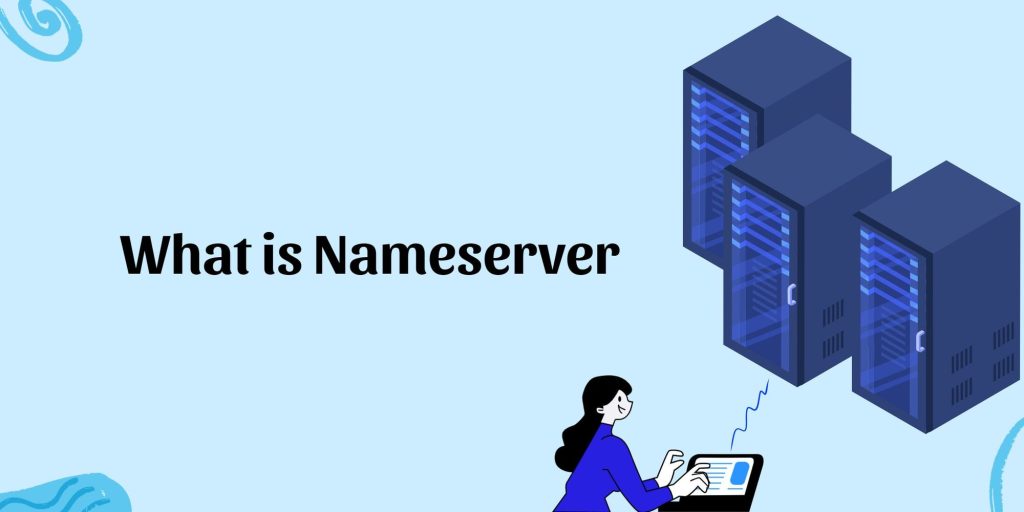What is Nameservers?

Nameservers, also known as DNS (Domain Name System) servers, are fundamental components of the internet infrastructure that facilitate the translation of human-readable domain names into machine-readable IP (Internet Protocol) addresses. They play a crucial role in enabling users to access websites, email servers, and other online resources using domain names instead of complex IP addresses.
Table of Contents
Why we need Nameserver?

Nameservers are essential components of the Domain Name System (DNS) infrastructure, and we need them for several important reasons:
- Domain Name Resolution: Nameservers translate human-readable domain names (e.g., example.com) into machine-readable IP addresses (e.g., 192.0.2.1). This translation is necessary for computers and devices to locate and access websites, email servers, and other online resources on the internet.
- Internet Accessibility: Without nameservers, users would have to remember and use complex IP addresses to access websites and services. Nameservers simplify this process by allowing users to use domain names, which are easier to remember and type.
- Load Balancing: Nameservers can distribute incoming traffic across multiple servers, helping to balance the load and ensure optimal performance and availability of websites and online services.
- Redundancy and Fault Tolerance: By using multiple nameservers and configuring them for redundancy, DNS services remain operational even if one nameserver experiences downtime or technical issues. This redundancy ensures continuity of service and minimizes disruptions.
- Customization: Nameservers can be customized with private or custom nameservers, allowing businesses to brand their hosting services, control DNS settings, and enhance their online presence.
- Scalability: Nameservers support scalability, enabling businesses to easily add or remove servers, change hosting providers, or expand their online infrastructure without affecting DNS functionality.
- Security: Advanced nameserver configurations include features like DNSSEC (Domain Name System Security Extensions) for enhanced security and protection against DNS-related attacks, such as DNS spoofing and cache poisoning.
What are the benefit of Nameserver?

Nameservers offer several benefits, including:
- DNS Resolution: Nameservers translate domain names into IP addresses, allowing users to access websites, email servers, and other online resources using human-readable domain names instead of complex IP addresses.
- Load Distribution: Nameservers can distribute incoming traffic across multiple servers, helping to balance the load and improve the overall performance and responsiveness of websites and online services.
- Redundancy and Failover: By using multiple nameservers and configuring them for redundancy, DNS services can remain operational even if one nameserver experiences downtime or technical issues. This ensures continuity of service and minimizes disruptions.
- Customization: Nameservers can be customized with private or custom nameservers, allowing businesses to brand their hosting services, maintain control over DNS settings, and enhance their professional online presence.
- Scalability: Nameservers support scalability, allowing businesses to easily add or remove servers, change hosting providers, or expand their online infrastructure without affecting DNS functionality.
- Security: Advanced nameserver configurations include features like DNSSEC (Domain Name System Security Extensions) for enhanced security and protection against DNS spoofing, cache poisoning, and other DNS-related attacks.
Overall, nameservers play a critical role in the functionality, performance, scalability, and security of online services by managing domain name resolution and DNS-related tasks efficiently.
What are Private Nameservers?

Private nameservers, also known as custom nameservers, are nameservers that use your own domain name instead of the domain name of your hosting provider or domain registrar. They provide a more branded and professional appearance for your hosting services. By registering private nameservers with your domain registrar and customizing them with your domain name, you can brand your hosting services, maintain control over DNS settings, and enhance the professional image of your online presence.
What are benefits of Private Nameservers?
Private nameservers offer several benefits:
- Branding: Private nameservers allow you to brand your hosting services with your own domain name. This enhances the professional appearance of your hosting business and reinforces your brand identity.
- Customization: You have full control over the DNS settings and configurations of your private nameservers. This level of customization enables you to tailor DNS records, manage DNS zones, and make changes as needed to suit your specific requirements.
- Control: With private nameservers, you maintain control over the DNS resolution process for your domain. You can easily update IP addresses, add or remove DNS records, and manage DNS-related settings without relying on third-party nameservers.
- Flexibility: Private nameservers offer flexibility in terms of server configurations and hosting providers. You can switch hosting providers or change server configurations seamlessly without affecting your domain’s DNS functionality.
- Security: Private nameservers can enhance security by limiting access to DNS management tools and configurations. This reduces the risk of unauthorized changes to DNS settings and helps protect against DNS-related attacks.
- Professionalism: Using private nameservers adds a layer of professionalism to your online presence. It shows that you have invested in custom DNS solutions and demonstrates your commitment to providing reliable hosting services to your clients or customers.
Overall, private nameservers provide branding opportunities, customization options, control over DNS settings, flexibility in server management, enhanced security, and a professional image for your hosting services.